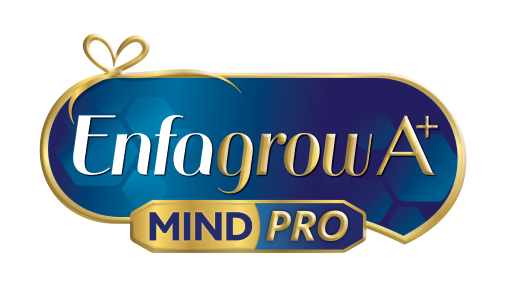
The COVID-19 pandemic has changed the way the world lives, play and interact with each other. It has forced upon societies, distancing requirement and consciousness like never before. As such, the changes we need to quickly adapt to, be it physical, mental or emotional, becomes even more real with the impending reopening of schools, kindergartens, preschools and nurseries for children above 1 year old. This fast approaching milestone has triggered a rise in parental concern on keeping their children healthy and safe.
The utmost priority is in protecting our own health and that of our loved ones. Therefore, taking the necessary precautions can keep your family protected and healthy during this uncertain time has become the main priority for most. Here are some of the precautionary measures that parents can practice and teach their children, so they will be as prepared as possible!
-
Communication is key1,2
-
Start a conversation with your child. It is difficult for children to comprehend the situation i.e. why they cannot play with their friends at the public playground, go swimming, or sit together at breaktime, and it is tempting to try to want to shield children from frightening things.
-
However, being open and honest with your child and presenting them the facts in a neutral manner will aid their comprehension of the new normal. Acknowledge and address their fears and worries as well as reassure them that the adults around them will take care of them and that doctors are working hard to find out how best to help.
-
-
Wash your hand and wear a mask
-
The World Health Organisation (WHO) recommends washing your hands regularly with soap and water to reduce the spread of germs 3. Encourage your child to sing the ‘Happy Birthday’ song twice while lathering and scrubbing both their hands with soap for approximately 15-20 seconds4.
-
Alternatively, you can pack an alcohol-based hand sanitiser if there is no water readily available. However, it is important to monitor the usage and application of hand sanitiser of your child. Always follow the instructions on the product label3.4.
-
WHO recommends children who are in general good health can wear a non-medical or fabric mask, however children aged 5 years and under should not be required to wear masks5.
-
Children also learn quickly and will mimic adult behaviour. It is worthwhile explaining the benefits of handwashing and wearing a mask to your child. So, practice what you preach and be consistent!
-
-
Avoid bringing your children to crowded areas unnecessarily and stay home where possible6.
-
Children may not be used to being cooped at home for long hours. especially if they are used to playing outdoors or going to the park. It is acceptable to bring them to a less crowded park or any open spaces with few people around.
-
Whilst home, keep them occupied with a mixture of activities, such as pretend play, arts and craft and reading picture books.
-
Balanced the day with the use technology to allow your kids to connect with their friends and family through virtual video calls.
-
-
Boost your child’s immunity through :
-
Stay hydrated with plenty of water and have adequate sleep.
-
Nourish your child’s body from within by ensuring they continue eating a balanced and nutritious daily diet which incorporates immunity nourishing nutrients.
-
WHERE DO I FIND IMMUNITY-NOURISHING NUTRIENTS?
Milk continues to be recognised as one of the main sources of immunity boosting nutrients by parents. It is a good source of energy, contains high quality protein, calcium and vitamin D to support optimal growth, bone health and immunity7. Naturally present in milk, there is a nutrient dense component called Milk Fat Globule Membrane (MFGM) and it also a component found in our brain.However, most of MFGM components are lost during commercial dairy processing. Recent advances in technology has allowed for MFGM to be added in concentrated form into growing up milk formulas, making this a major breakthrough in children nutrition.
You want to make sure your child is getting the nutrients they need to for immunity development
WHY IS MFGM IMPORTANT FOR MY CHILD?
A key component in a child’s overall health is having the right nutrition to build their child’s immune health, which in turn will support their physical and mental development. 70-80% of the immune cells are found in the gut where immunity can be further supported by specific nutrients. MFGM helps build your child’s immunity and development through its dual function in activating and modulating the function of immune cells and developing your child’s emotional and behavioral regulation at the same time8.
HOW DOES MFGM WORK?
-
MFGM activates and modulates the immune system to defend against bacteria and viruses. Consumption of MFGM enriched milk by young children was shown to have protective effect against gastrointestinal infections, producing a significant decrease in days of fever symptoms

-
In addition, MFGM helps brain cells to connect which leads to improved mental development, particularly emotional and behavioral regulation which is a core quality in emotional intelligence (EQ) in young children. Preschool children who consumed milk formula that is enriched with MFGM for 4 months were evaluated by their parents and were found to have better behavioral and emotional regulation compared to children who drank standard formula8.

-
MFGM works synergistically with other key ingredients such as DHA, prebiotic dietary fibre like PDX-GOS and Yeast Beta-Glucan to support the dual role in protecting your child’s immunity and supporting mental development. Research has shown that enriched milk with DHA, PDX-GOS and Yeast Beta-Glucan has led to fewer episodes and shorter duration of acute respiratory illnesses and less antibiotic use9.
Now more than ever, it is important for children to have a strong immune system. Build and strengthen your child’s immunity within with the right nutrients like MFGM Complex, DHA, PDX/GOS & Yeast Beta Glucan, for a strong immunity is the start of building a smarter tomorrow.
Disclaimer: The information provided is for educational and communication purposes only and it should not be construed as personal medical advice, nor for medical diagnosis or treatment. At all times, please ensure you seek the advice of your healthcare professional when you require medical advice and do so immediately in cases where there is an emergency.
Article by Motherhood
References:
- COVID-19 Parenting - Talking about COVID-19. Retrieved from:
https://www.who.int/publications/m/item/covid-19-parenting-talking-about-covid-19 - #HealthyAtHome. (n.d). WHO|World Health Organization. Retrieved from:
https://www.who.int/campaigns/connecting-the-world-to-combat-coronavirus/healthyathome/healthyathome---healthy-parenting - Hand Hygiene:Why. How & When. Retrieved from::
https://cdn.who.int/media/docs/default-source/integrated-health-services-(ihs)/infection-prevention-and-control/gpsc-when-and-how-leaflet-4fold-en.pdf?sfvrsn=6f696782_2 - Reduce the spread of new coronavirus; Wash your hands. Retrieved from:
https://www.munsonhealthcare.org/blog/reduce-the-spread-of-coronavirus-wash-your-hands - Q&A: Children and masks related to COVID-19. Retrieved from:
https://www.who.int/news-room/q-a-detail/q-a-children-and-masks-related-to-covid-19 - Coronavirus disease (COVID-19) advice for the public. Retrieved from:
https://www.who.int/emergencies/diseases/novel-coronavirus-2019/advice-for-public - National Coordinating Committee on Food and Nutrition. Malaysia Dietary Guidelines for Children and Adolescents 2013. Retrieved from:
http://nutrition.moh.gov.my/wp-content/uploads/penerbitan/buku/MDG_Children_adolescent_2014.pdf - Veereman-Wauters G et al. Milk fat globule membrane (INPULSE) enriched formula milk decreases febrile episodes and may improve behavioral regulation in young children. Nutrition. 2012;28:749-752. Retrieved from:
https://www.sciencedirect.com/science/article/abs/pii/S0899900711003741?via%3Dihub - Li F, Jin X,Liu B,Zhuang W, Scalabrin D. Follow-up Formula consumption in 3- to 4-Year-Olds and Respiratory Infections: An RCT. Pediatrics 2014;133:e1533-1540. Retrieved from: https://www.ncbi.nlm.nih.gov/pubmed/24843061

